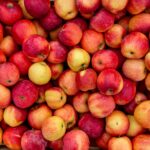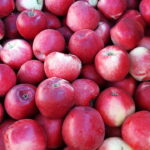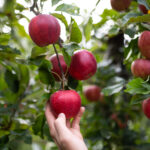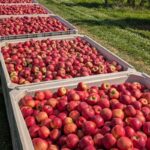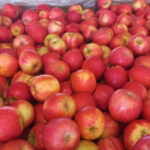Majority of Poland's apple crop to be sent for processing, says Appolonia

Widespread damage from hail over recent months is likely to result in the majority of Poland's bumper apple crop being used by the processing industry this coming season, according to Appolonia. 
The company's president Michał Lachowicz told www.freshfruitportal.com that while typically around 40% of the deal would be processed, the figure was set to be much higher this year.
"Many areas of the country have experienced hail. For a period we had hail in different areas almost every week," he said.
"Normally in Poland the percentage of apples sent for processing is around 40%, but this year it could even be 60%."
Lachowicz said this would be a major problem for growers, given the low prices currently offered by the processing industry.
"Nowadays in Poland the price for industrial apples is much lower than the cost of production. They will lose money for sure," he said.
Although official production estimates will not be ready for a couple of months, the Central Statistical Office (GUS) reportedly believes it will be around 3.5 million metric tons (MT).
This would mark a 10% year-on-year increase from the previous campaign, and nearly a 70% rise from 2005.
The recent opening of the Chinese market is expected to relieve some of the market pressure, but Lachowicz said shipments were unlikely to start until October and volumes would be small to begin with.
China signed the protocols for apple exports from the Eastern European country in June, as part of a state visit by Chinese President Xi Jinping, but inspectors are yet to certify the Polish farms.
"By the middle of October we will get final certification and after that we will ship our first trial shipments. After that we will be able to increase our exports to China. When trade begins with a market is it usually hard and slow," he said.
"I am sure that it will take few years to find out real potential of that market for polish apples. Everything is possible.
"The number of consumers, growing incomes and fast development of Chinese economy are the factors which allow us to believe in great future of this market."
In June, Appolonia general director Karolina Zaluska said some fruit may be sent to China via trainfreight, along the railway line running between the two countries.
But she said clarification would be needed first as to whether Russia would allow banned produce items to pass through its territory.
"There has been no final decision, but discussions are ongoing on the official level to see if it will be possible," she said at the time.
"But we hope so, because we would just be transferring the fruit and not putting it on the Russian market."
Photo: www.shutterstock.com
















